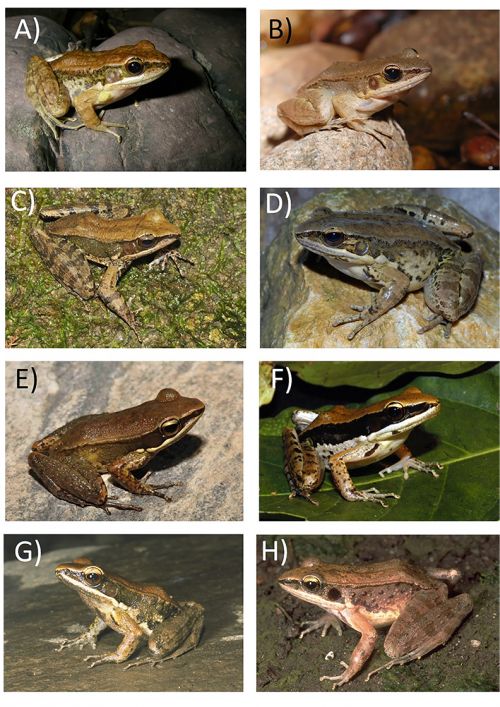
Accurately delimiting species and their geographic ranges are imperative for conservation, especially in areas experiencing rapid habitat loss. Southeast Asia currently has one of the highest rates of deforestation in the world, is home to multiple biodiversity hotspots, and the majority of its countries have developing economies with limited resources for biodiversity conservation. Thus, accurately delimiting species and their ranges is particularly important in this region. We examined genetic and morphological variation in the widespread frog species Sylvirana nigrovittata (and its long-treated junior synonym S. mortenseni) with the goal of clarifying its taxonomic content and geographic range boundaries for conservation. We present evidence that the current concept of S. nigrovittata contains at least eight species, two of which are each known from only two localities, but that S. mortenseni is more geographically widespread than currently realized. Five of these species are described as new to science
